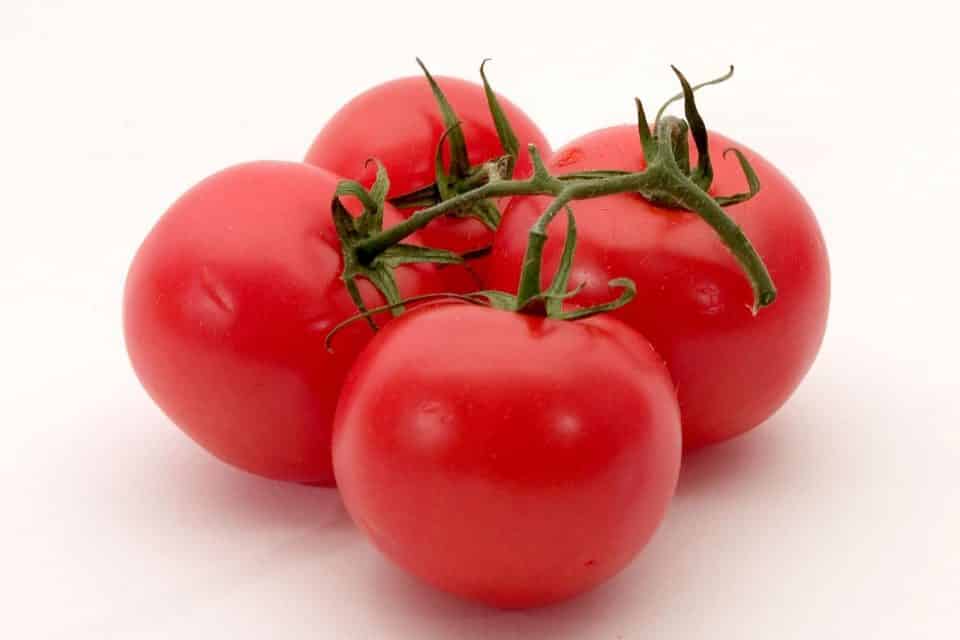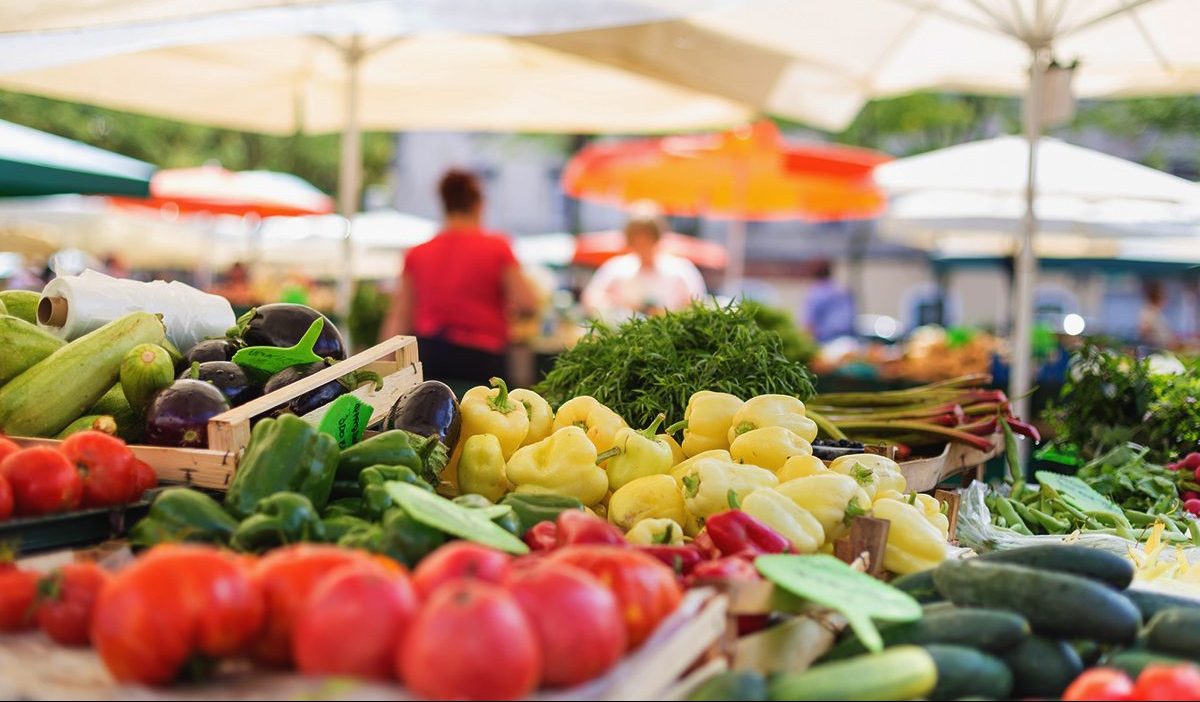In my first essay here at Front Porch Republic, I wrote about the idea that creation-friendly agriculture is not about going back to old fashioned ways, but is actually quite cutting edge. This is especially the case since what we know about soil is pretty recent knowledge. The comments it spawned were positive, but a theme emerged therein. What can be done to change agriculture at scale?
I admit I’ve done my fair share of scolding industrial agriculture. However, I also believe that the planetary damage caused by this kind of agriculture is as much a product of consumerism as it is the evils of industrial practices. If that’s the case, should more of my energy as an agrarian be directed into consumer education rather than protest of industrial agribusiness? Shouldn’t I put as much effort into telling consumers to stop buying crappy food as in telling farmers to stop tilling the soil and leaving it bare for seven months of the year?
Not long ago, I listened to an older BBC4 podcast that featured British economist Kate Raworth, British environmentalist Paul Kingsnorth, and Wendell Berry. As I digested what they all were saying, my thoughts evolved about three powerful forces: agribusiness companies, farmers, and consumers. Though the primary theme of the conversation was the need for limits, listening to the discussion caused me to see those three powers on a triangular balance of sorts, and I contemplated which of the triad was heavier, so to speak.
Compared to the other two, the power of the farmer is limited at best. Many farmers report they feel powerless to define what food consumers eat or what crops to grow, often describing themselves as trapped by their suppliers, the agribusiness corporations. Yet, when I consider the purchasing consumer and their impact on the food we eat, I see a different force. I believe, in truth, consumers far outweigh the other two influences on food choices.
I’m not denying the power of Bayer or the American Dairy Association—the latter of which is far more powerful than people realize. Associations, such as the ADA, spend hundreds of millions of dollars to position their products to the consumer. Remember the “Got Milk” campaign? There is certainly influence on consumers by these kinds of efforts.
Chemical and seed companies realized just how little influence they have over consumer purchasing, so they focused their efforts through regulation and controlling the governing bodies that provide oversight for agriculture.
Notwithstanding successful public relations campaigns, even the mighty ADA is not as powerful as consumers choosing to buy one thing and not another. Yes, consumers can be influenced. Billions of dollars of advertising revenue are testament to that. Yet farmers, ag companies, and associations cannot force a consumer to spend their income on one kind of food over another.
Here’s an example. The Flavr Savr tomato of 1994 was hailed as a breakthrough and had the FDA blessing to take it to market as the first genetically modified food to be sold in stores in the U.S. It held the promise of better tolerating shipping; it didn’t get squishy by the time it got to produce departments. However, due to many factors, the American consumer simply didn’t find the tasteless tomato worthy of their hard-earned dollars. Even tomato paste made from this tomato for the United Kingdom market quickly fizzled. The consuming public simply chose not to buy, no matter how much agribiz and public relations campaigns tried to influence. The company that developed the tomato eventually sold out to Monsanto as a result of the unrealized potential.

This example of failed food product launches is an indicator, a tell of sorts, that the consumer has the real power. If coalesced into a unified force for whatever reason, the buying American has power far beyond farmers, seed companies, chemical companies, the FDA, the USDA, and associations.
So, what’s the problem? The Western consumer has chosen convenience over quality; ease over nutrition—and we’re paying for it in ever escalating costs of healthcare and a seemingly continual slide into diet-related disease rates that are epidemic in scale.
The explosion of the supermarket following World War II and the increasingly mobile family meant that kitchens and households began to operate differently. The whole frozen-TV-dinner mentality quickly and easily took hold in generations of people who eschewed their parents’ and grandparents’ way of sourcing food and eating seasonally. By the late 1950s, supermarkets were pushing small grocers out of small towns and neighborhoods. Single-parent families or dual-income families meant less time for meal preparation. This contributed to the rise of the mega supermarket. This meant larger suppliers and processors which exacerbated the need for farmers to get big or get out, a common cry coming from the USDA during this era.
The bottom line was Americans, and many of our European peers, changed purchasing habits based on convenience and just assumed the good will of those upstream in the food chain to produce wholesome healthful food. We were duped.
Yet this narrative suggests that we can change the face of agriculture, even at large scale, if the American consumer collectively refused to buy poor-quality food, refused to buy food that was transported more than 250 miles, refused to buy food that was produced without a fair return for the producer, and refused to buy food with transgenic manipulation. I know the economics of the industry would shift if the dollars shifted. When the boom of the farmers’ market exploded in the last 10 years, grocery stores adapted and started selling local produce. Why? Because the choices consumers were making forced grocery chains to make this change.
We have the power, not Bayer, not the USDA, not the American Dairy Association. Those of us who purchase food have the power to define what food we eat, how it’s produced, and its quality. This power rests in our decision regarding where we make our transaction. We only need to wake the sleeping giant.





12 comments
MDB
I agree, in part, that consumers have ‘the pull’ to effect positive changes in industrial agriculture. But the fact is that your avg. consumers have been exercising their power for the worse considering the upward levels of meat and dairy consumption among affluent and rapidly-developing nations. A symbiotic relationship obtains between producer and consumer, for sure. But “the industrial grain-oilseed-livestock complex” (Tony Weis) has the leverage. Together with its cheap-food industry patrons, both know the Achilles heal of the consuming public having mastered the art of weaponized pleasure. And given the profitability of this disastrous model, not to mention the immense governmental power that its lobbyists and functionaries control, the prospects of the consumer side of the equation effecting a significant overhaul is still bleak.
Dan Grubbs
Hello MDB,
I agree with you that the current level of “pull” is not unified in an appropriate direction. I think that’s more a matter of awareness raising and education. When there are more Michael Pollans and Joel Salatins in the world, we can begin to shift power away from the “industrial complex” and reclaim our food. I would say that the place where we will make the most headway is in the faith community. The more people hear the message that this Earth is sacred (Berry) and that the table is a place of wellness and wholeness; the more people understand that food is a provision from God; we will begin to look at food differently. My hope is that we will learn the lesson of the Hebrew wilderness wanderings that we can trust in God to provide for us and that we must stop and consider that in thanksgiving. I would recommend people of faith to read the books and watch the videos of Prof. Norman Wirzba. It would go a long way to this education of which I speak.
Willis Renuart
The book “The Great A&P” is relevant because it is about how scale made fruits and vegetables available and affordable to the general public, who had only been able to get canned food and bulk grains from the corner store. A large percentage of the public still cannot afford fresh fruit and vegetables. Can we really feed the planet with affordable local food or is it just for the rich like organic food?
Dan Grubbs
Hi Mr. Renuart. Thanks for the thoughtful question.
If we remain within the current global economic model we’re in it will be a challenge to feed everyone. Notwithstanding the insane amount of produced food that never makes it to people’s mouths (some reports indicate as much as 50%), I certainly could be convinced that we cannot feed the world under our current food system and economic model. Yet, I also believe many people think about scale when they think of these issues when I tend to think more locally. I continually hear about more and more people growing food and helping with food insecurities in their local area. Many churches are adopting food ministries to their mix of programming and see an opportunity to live out the teaching of Christ by helping to feed “the least of these.” A portion of what is produced on our homestead goes to help people we know in need or to supply a local ministry. The point when it comes to food insecurity is to solve issues locally within a specific context — in my case, in the context of a community. Government programs are not capable of dealing with things well on a local level, in my opinion. Who do I know that is food insecure and what am I personally doing about it? If we all respond to that question with action, I dare say we would have a different landscape when it comes to food insecurities. Am I going to end food deserts in Detroit? No. Nor should anyone expect that I could. But, can I help with food insecurities in Clay County, Missouri? I believe I must.
Dan Grubbs
Thanks for the note, Brian. As you mention, the rise of the mega supermarket is well documented. I didn’t want to cover that. I will certainly admit that supermarkets save consumers time. Yet, I contend that we want consumers to realize they don’t need to save time when it comes to feeding themselves. If it means eliminating other things from our lives, so be it. I believe we need to change our lives to include the careful acquisition, preparation and sharing of food. I strongly believe we will gain much more than we lose by whatever this replaced in our lives.
I cheer your statement that, in general, the local purchase is better than the chain-store purchase. Better as measured in many ways, not the least of which is the support of a more localized economy supporting smaller business, often family owned. I know of producers who will never seek USDA organic certification for a host of reasons, and they produce food that is nutrient dense and healthful and delicious. I often tell people, if you can’t shake the hand of the producer, reconsider your purchase.
Additionally, I realize that not everyone has easy access to local, in-season produce and pastured protein. This is part of the suite of issues in local food we need to address. But my overall point was that we who are consumers can actually redirect what is grown, how it’s grown, and where we buy food by changing our purchasing decisions.
Karen
I agree with the general point that we should all learn to cook and understand the sources of our food, but I can’t help but worry when someone suggests that we need to ‘eliminate’ other things from our lives without noting what those things to be eliminated are, who does the eliminating to whom?
Dan Grubbs
Hi Karen, thanks for the comment. I wouldn’t presume to tell other people what to eliminate from their lives to make room for something as important as feeding themselves and their families in a wholesome manner. These would be individual decisions. For me, as an example, I could eliminate an hour of watching TV each evening. The point is if we re-examine our values of what is important in our lives, we can re-prioritize. And, hopefully, in that reassessment, we adopt a new mindset of how important it is for a healthy life to source, prepare, and store quality food. Each family can make this assessment and consider just how valuable it is to share a meal together – a meal of healthful food. I certainly wouldn’t advocate for some authority outside our own households making this decision for us.
Rob G
A lot of people look at this sort of “porchiness” or “crunchiness” or whatever as legalistic when in fact it’s really more ascetical, which is the exact opposite of legalism. It’s not commanding people to “eat their spinach,” but rather trying to convince and encourage them that it’s a good thing to do so. The problem is that America’s individualism and consumerism do not lend themselves to the pursuit of the ascetical, and thus most people don’t have the necessary framework to view it as anything other than legalistic. In that sense (but not only in that sense!) the whole thing is decidedly counter-cultural.
Rob G
What I mean by “ascetic” is the recognition that the self-imposed limitation of the acquiring or consuming of certain good things can be beneficial to oneself and others. For instance, while you may be able to afford a $50,000.00 car, and you may want that $50,000.00 car, it could be the case that you would do perfectly well with something considerably less expensive, and you could use the money saved for something more helpful/necessary.
Our culture tends to tell us the opposite of this: if you want the expensive car, and you can afford it, why shouldn’t you have it? The consumer culture tells us constantly “it’s all about you!” and “have it your way!” It’s telling that what was once the tagline for a fast-food joint has become a sort of unspoken motto for the whole consumer culture, one in which limitations are seen as burdensome at best and intolerable at worst.
Dan Grubbs
Morning Rob,
I love the idea you wrote that we’re not trying to command people to eat their spinach. Part of convincing and encouraging them is what Normal Wirzba teaches about being much more mindful about what the food is and how it got to one’s table. He teaches that our contemplations about food have economic, theological, social, and moral implication. I recommend Wirzba’s books and lectures. In fact, here’s a 3 min. video of Wirzba talking about that very thing. https://youtu.be/YEyRnYrlBPY
I think it’s very germane to your point about this being an ascetic (if I understand your use of that term as you intended). If we’re to turn consumers into contemplative shoppers of food, we need to change the way we currently think about food and have a full understanding of where it came from and how it got to our table, not the least of which is the internalization that something had to die (plant or animal) in order for us to eat.
I’m not sure which culture this is counter to because I’m not sure there is a homogeneous culture in a large country, such as the U.S.A. But, I can see a case being made this is counter to consumerism and globalism.
Karen
I like this answer.
Brian
As has been linked many times here, including by myself, “The Great A&P” is a great read on this topic. The post-WWII supermarkets were merely one step in a much longer trend. And consumers really did benefit convenience-wise, and also/especially economics-wise, which you never seem to mention, and even, at least initally, almost certainly quality-wise . There were those fighting consolidation, but they had very little public support in general, and the legislative attempts to promote small grocers were not only insufficient, but in many cases were downright counterproductive.
Small steps are necessary, and to keep in mind that even a few percent of the food market is a vast sum of money, but don’t let the real local producers get co-opted–if the choice is between “organic” produce from Walmart and non-organic from a local producer, buy from the latter every time (after educating yourself on what exactly they’re doing, for instance maybe they’re just non-organic because they don’t have the time and money to get the official certification, but they actually are in practice).
Comments are closed.